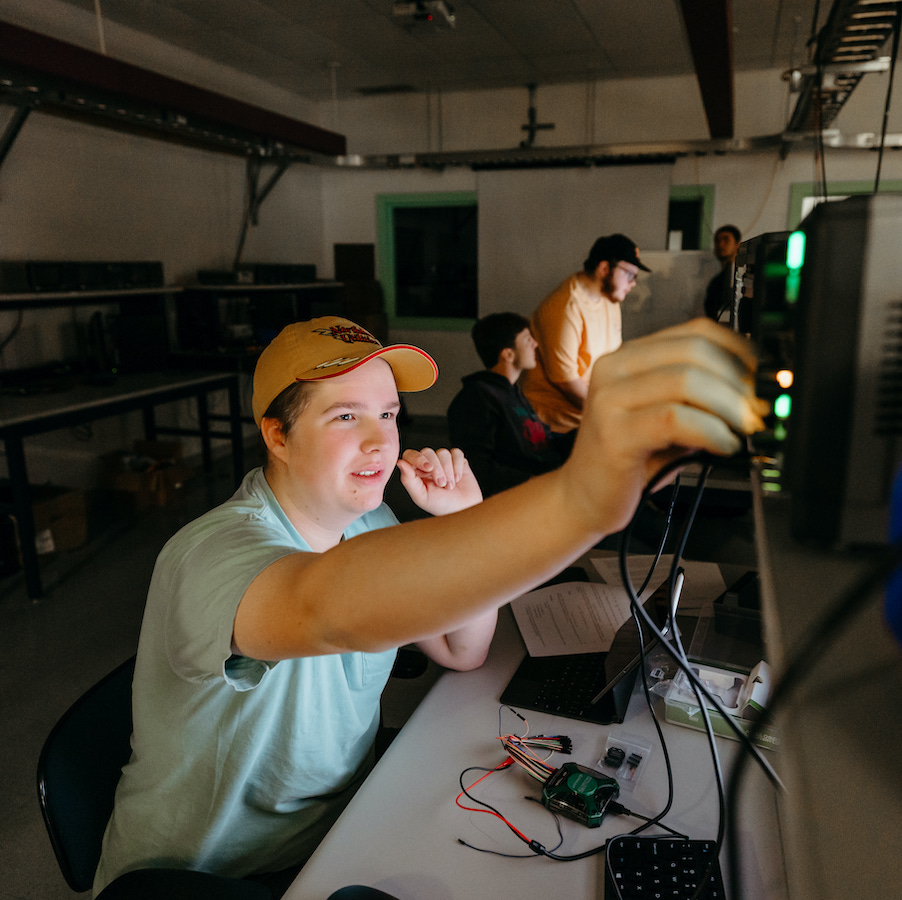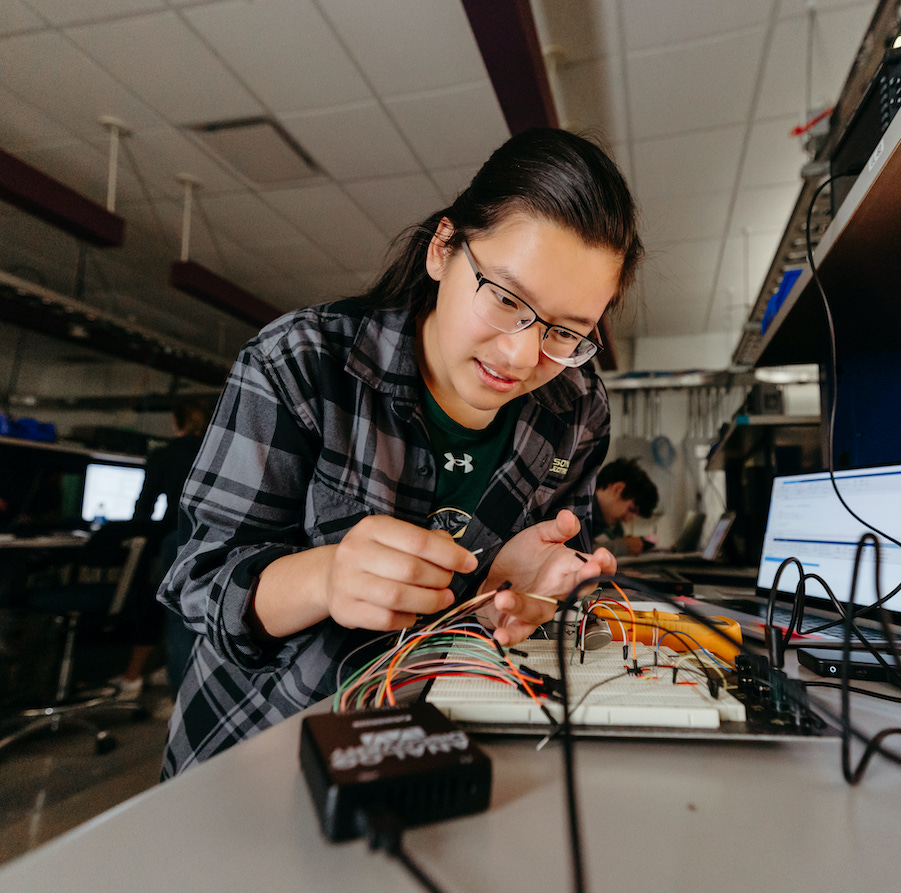Power Engineering Programs

Undergraduate Power Engineering Programs
At Clarkson University, you’ll gain the power to shape the world’s energy future. Through our Electrical Engineering bachelor’s degree, you can focus on Power Engineering — exploring how electricity is generated, transmitted, and delivered to communities worldwide. From renewable energy systems and smart grids to sustainable power solutions, you’ll work hands-on with the technologies driving tomorrow’s clean energy innovations. With small classes, expert faculty and real-world research opportunities, Clarkson prepares you to lead the next generation of power engineers — ready for careers in energy, utilities and advanced engineering fields. Learn more about Power Engineering at Clarkson University and how you can start building your future in energy today.
Graduate Options
Launch your future with the Power Engineering concentration within the MS in Electrical Engineering program. Train through flexible online, hybrid and on-campus options to manage modern electric power systems — from renewable energy and smart grids to electric-vehicle infrastructure and utility controls.
Center for Electric Power Systems Research (CESPR)
Clarkson University’s Center for Electric Power Systems Research (CESPR) is a national leader in electric power engineering education and research. Building on one of the top power engineering programs in the United States, CEPSR connects students with industry experts and cutting-edge research focused on clean energy, smart grids and electrification. Undergraduate and graduate students gain hands-on experience tackling real-world challenges like reducing carbon emissions and advancing sustainable energy systems. With strong industry partnerships and career-focused programs, Clarkson prepares future power engineers to lead the transformation of the global energy landscape.
Furthering Career Opportunities
Isaac Ashdown, a graduate student in Clarkson’s online MS in Electrical Engineering (Power Systems Cohort) program, is already applying what he’s learning to his full-time engineering career at National Grid.
“I knew earning a master’s degree from such a reputable university would open career opportunities that might have otherwise been out of reach.”
From synchronous lectures to cohort collaboration, Isaac is proving that flexible online learning can still be highly connected and career-changing.



